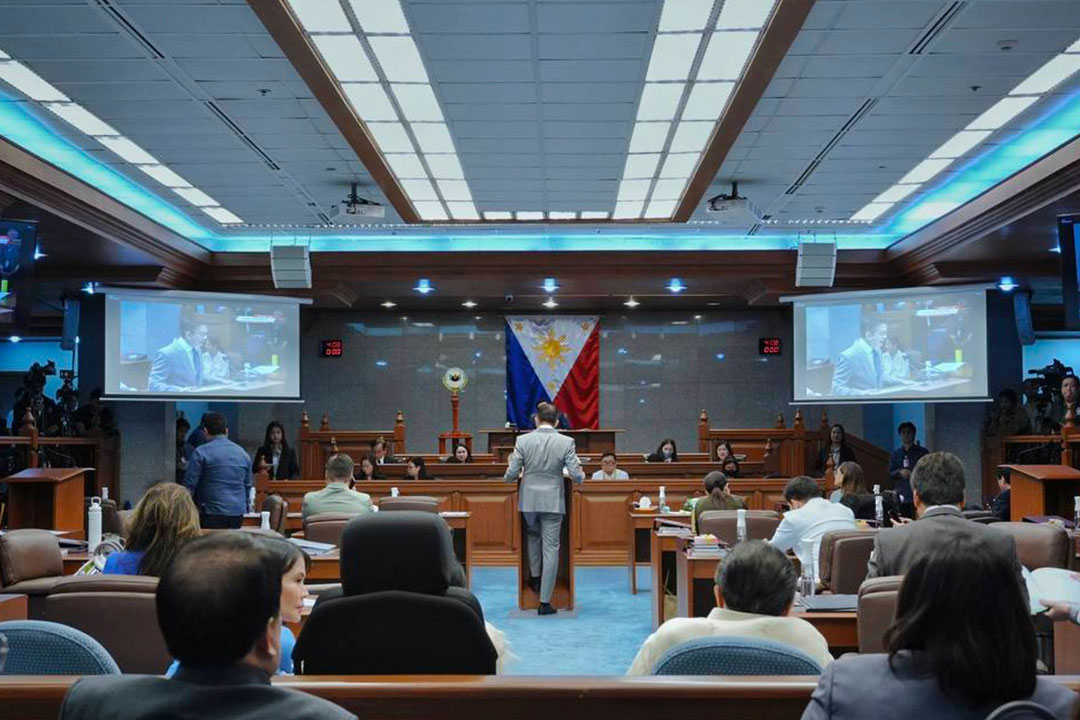Freedom of Information measure filed in Senate

A SENATOR has filed a bill that seeks to institutionalize freedom of information by requiring all branches of government to make public key records, including the annual statement of assets, liabilities, and net worth (SALN) of public officials.
Filed on July 21, Senate Bill No. 723 mandates full disclosure of SALNs from officials in the Executive, Legislature and Judiciary. Covered are the President, Vice-President, Cabinet members, lawmakers, Supreme Court justices, officials of constitutional commissions and Armed Forces officers with general or flag rank.
“Our citizens deserve a government that is open, transparent and accountable,” Senator Francis “Kiko” N. Pangilinan, who authored the bill, said in a statement. “We can take a vital step forward in fighting corruption, strengthening public trust in government and enabling meaningful civic participation with the passage of the Freedom of Information (FOI) bill.”
The measure will enforce public access to government documents, records and data — extending beyond the executive branch to include Congress, the Judiciary, local governments, state colleges and universities, chartered institutions and government-owned or -controlled corporations.
Mr. Pangilinan noted that despite a constitutional guarantee of access to public information, no enabling law has been passed for more than three decades. A 2016 executive order under former President Rodrigo R. Duterte created FOI mechanisms for the executive branch but not for Congress and the Judiciary.
The bill requires agencies to publish annual budgets, itemized collections and disbursements, procurement plans, plantilla positions and vacancies and details on loans, bids and contracts. It also mandates timely updates of such records on agency websites.
FOI requests may still be denied if the information poses risks to national security, foreign relations, or is covered by executive privilege or closed congressional sessions.
Public officials who unjustifiably deny access to information face fines of P10,000 to P100,000 and imprisonment of one to six months.
Those who destroy or sell public records may be fined between P500,000 and P1 million, imprisoned for five to 15 years, or both.
Congressmen on Monday refiled a similar bill at the House of Representatives. Deputy Minority Leader and Party-list Rep. Leila M. de Lima said the bill gives Congress a chance to act on long-standing demands for transparency, particularly after President Ferdinand R. Marcos, Jr.’s recent remarks condemning corruption in infrastructure spending.
Although the 1987 Constitution recognizes the people’s right to access public information, an enabling law is needed for full implementation.
Several FOI proposals have been filed since 1992 but failed to pass, primarily due to a lack of legislative urgency.
House Bill No. 2897 requires all government agencies to make public “all information on official acts, transactions, decisions, as well as government research data used as a basis for policy development.”
Agencies must also publish monthly records on budgets, collections, expenditures, procurement plans, contracts, bidding documents and trade or investment agreements.
Exemptions include documents deemed sensitive to national security or foreign relations, as well as privileged court communications and records from congressional executive sessions.
Last year’s budget deliberations drew criticism after the bicameral conference committee reportedly increased unprogrammed funds to more than P500 billion and included so-called “blank line-items” — prompting concerns that changes were made after Congress ratified the budget.
Mr. Marcos, Jr., in his State of the Nation Address on July 28 warned Congress that he would reject any budget proposal that does not align with his administration’s priorities, even if it results in a reenacted budget. — Adrian H. Halili



